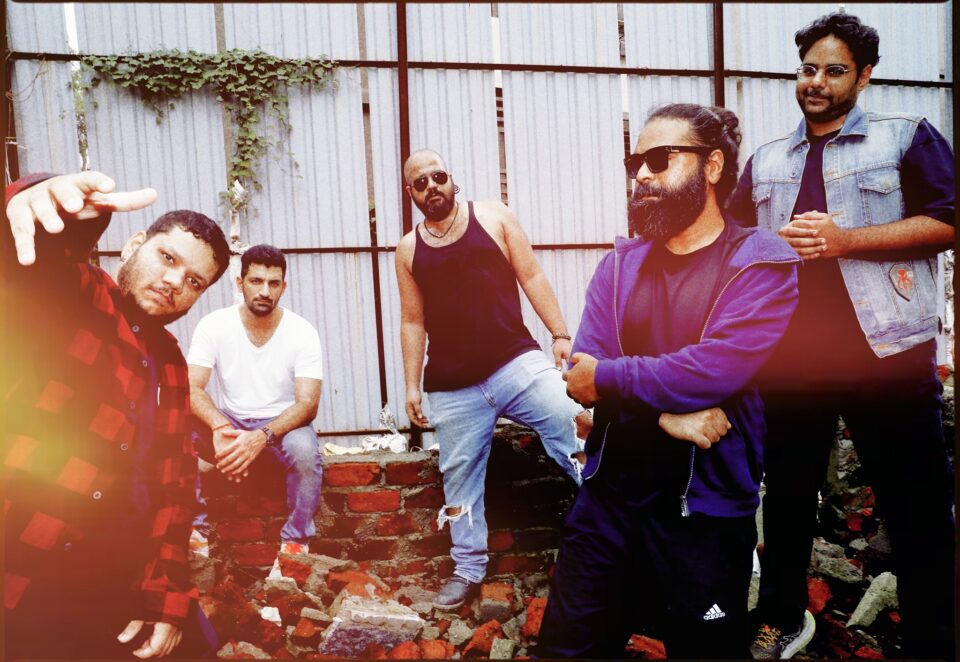Blakc’s New Album ‘Chemical Liaisons’ Brings Frenzy and Fury
‘We love being heavy but we also enjoy being sonically aesthetic,’ says the Mumbai rock band’s guitarist and songwriter Reinhardt Dias
Fifteen years since they released their first album Choking On a Dream in 2009, Mumbai rock band Blakc have been sticking to their guns when it comes to emotive, grungy rock inspired by the likes of Pearl Jam – they got their name from the Seattle band’s song off Ten – but also gotten angstier as they got older.
A turning point, according to anyone who’s followed the band all these years, was their 2015 single “Choices.” It was preceded by their second album Motheredland (2012) and what followed was the polished third album, The Consequence of Feeling (2018). While their EP What is Time from 2021 was a proud addition, there’s a resounding confidence that courses through their fourth album Chemical Liaisons, released in August.
Blakc currently comprises founding members like guitarist Reinhardt Dias, vocalist Shawn Pereira and guitarist Anish Menon along with drummer Varun Sood (from post-hardcore band Pacifist) and bassist Shawn Phulpagar (who replaced Sourya Mukherjee in 2022, with the latter having contributions on Chemical Liaisons). Dias says they’re “constantly writing music without thinking about an agenda.”
It was around the pandemic lockdowns a few years ago that song ideas began becoming fuller. Dias says, “We decided to reject some new songs we wrote, added some rejected songs from yesteryear (that were possibly a decade old) and also wrote some new material in the process.”
While they junked a few, they kept “The Book,” a groovier, almost dancey jam that opens with a solo. Dias says it was taken out from the final track list for Motheredland in 2012. “It had literally been rejected by the band for the last 13 years. It was hard to convince the band to let it sit on this album. We had to dig deep and find the right sonic direction to keep all band members happy for this rather complex track,” the guitarist says.
If there’s anything to be said of the 11 songs off Chemical Liaisons, it’s that they bear Blakc’s stamp of prog and alt-rock that occasionally gets heavy, introduces soaring hooks and blazing solos in good measure. There’s a certain predictability in their style, but it bursts with energy in a way that tells you the band is far from tired of finding new sonic stories to tell.
If “The Book” was the oldest song along with a few others like “Magnets” and “The Enemy” originating a decade ago, the raw love song “Be Mine” was the newest song that made it to Chemical Liaisons. Dias says they tried different production methods and went back and forth, before questioning if it fit into the album. “In the end, it turned out to be an easygoing soft-rock breather that was much needed amidst the heaviness that this album brings,” he adds.
Elsewhere, “Dig” may start off with mellow guitar licks, but gets heavy as Blakc can get by the end. “That Constant Hum” writhes and journeys into a groovy rhythm. Menon says, “Anything you hear is 100 percent spontaneous, we never have conversations about a song sounding like one band or the other. Having said that, you can definitely hear influences like Varun’s love for Meshuggah come out in the chorus of ‘That Constant Hum.’” The album closes with “Paradise,” which is when the intensity is at an all-album high.
There are plans to have a couple of music videos out and a tour soon. It’s apparent to the band that it’s a very different time to be a rock band putting out albums compared to 2009. Menon says, “We’re thinking of ways to keep engaging people online rather than just posting the same album links.” Dias adds, however, that they were never affected by any changes and trends.
There have been changes nevertheless. Phulpagar (currently taking a breather from band activities after becoming a father) is shaping a different visual aesthetic for Blakc, including a new logo and the album cover art for Chemical Liaisons and merch. Dias adds how the band members each have access to home studio setups that have given them more room (pun unintended) to craft their music. He says, “We now have the freedom to look at our songs in their raw form, adapt to what represents our sonic identity and vision and then align our performance with a more focused intent than we would have done 15 years ago.”








